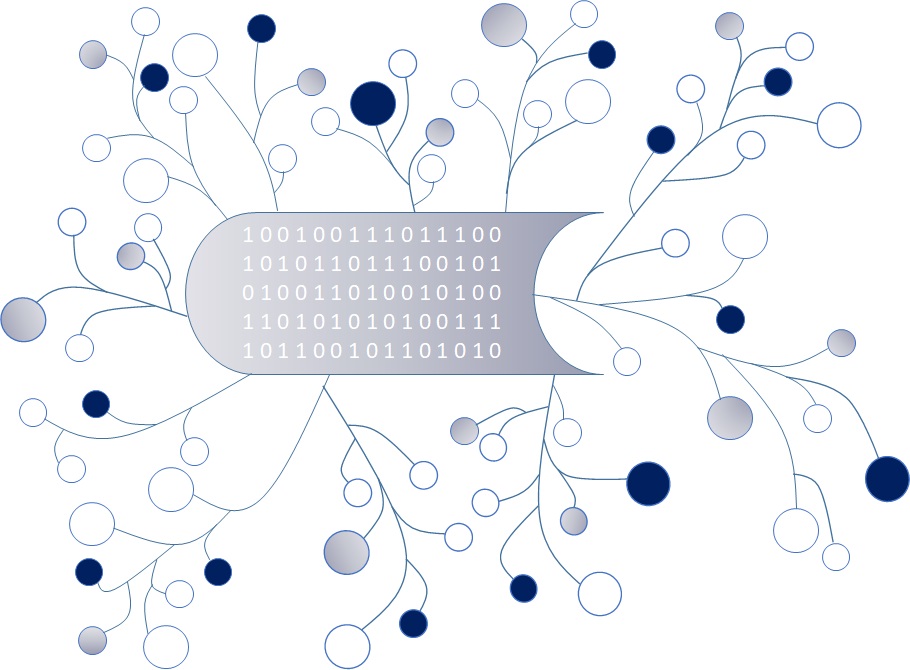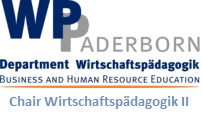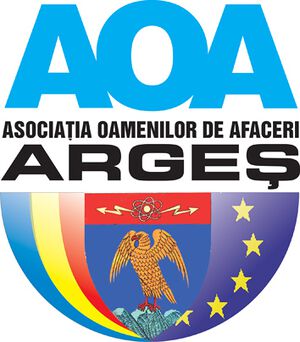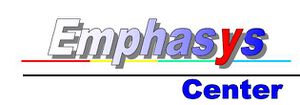Welcome to the DigI-VET MOOC! (in Greek language)
DigI-VET - Fostering Digitisation and Industry 4.0 in vocational education and training

In this sMOOC we inform you about the digitisation/digitalization project DigI-VET and its results as well as about digialization in vocational training. Our project includes a curriculum approach, learning modules and learning resources / teaching materials, best practice showcases and the DigI-VET book. This sMOOC on the project and digitization is also part of the DigI-VET project. You can use this sMOOC use without any charge or cost - just for free. It is an open educational resource (OER).
This MOOC was developed and implemented as part of the DigI-VET project. DigI-VET is an acronym for is and acronym for "Fostering Digitization and Industry 4.0 in Vocational Education and Training." DigI-VET is an international project within the framework of the EU education and support program ERASMUS +.






Informationen über den DigI-VET sMOOC
In diesem Bereich finden Sie Informationen über die Hauptzielgruppen, die Ziele des MOOC, die Ergebnisse und die Idee und die Struktur des DigI-VET sMOOC.
Hauptzielgruppe
Hauptzielgruppen des sMOOCs sind:
- Lehrkräfte in der Berufsbildung
- Berufsbildner und Personalentwickler in Unternehmen
- Berufsbildner in der Bildungsverwaltung
- Berufsbildungsorganisationen und -institutionen
- DigI-VET Nutzer
- sowie Personen die an Fragen der Digitalisierung in der Berufsbildung interessiert sind.
Ais of the DigI-VET sMOOCs
The aims and objectives of this sMOOC are ...
- To give vocational trainers an insight into the challenges of digitization.
- to provide an overview of the competence profile digitization.
- to present the modules of the curricular approach of DigI-VET.
- to offer examples of digitization.
- to provide educational and didactic hints.
- to initiate discussions on the ideas and topics of the project.
- to raise awareness of the challenges of digitalisation in VET.
- to introduce the project DigI-VET.
Outcome
The users / learners in this sMOOC
- Gain knowledge about the challenges and opportunities of digitization in VET contexts.
- solve tasks to gain in-depth knowledge and knowledge in the field of digitization.
- focus on European educational approaches to digitization.
- rethink the form of digitalization training and Industry 4.0.
- Gather knowledge about ERASMUS + ProjeCt DigI-VET.
Structure of the DigI-VET-sMOOC
This sMOOC makes it easier to find information on digitization and industry 4.0 and thus to obtain a basis for using it adequately. It helps to create innovative vocational training and to adopt a European approach. You, the vocational educators, teachers and trainers, should get an idea of the opportunities and challenges associated with digitization and Industry 4.0 and how useful these aspects are. That's why we decided to provide information and learning activities about: > the idea of DigI-VET > insight into the difference between digitization and digitalization > insights into possible competence profiles > the presentation of the importance of pre- and post-processing sequences > the link to our DigI-VET project website.
So let us start!
Introduction
When we talk about digitization, we focus on a current topic which is subject to a broad discussion. In its origins, the German interpretation of digitalization rather reflects what is being discussed as digitization in the English language, because with digitization we often refer to a transformation of analog information, data and values into a digital form or a digital format. From time to time we also take the administration, processing and storing of such digital formats into consideration and discuss the necessary IT systems or the necessary technical equipment in schools or vocational contexts. But that is not everything today. Digitization has many other connotations and effects, as it leads to process-related changes, which today are often thematized under the heading of Industry 4.0. Here, VET is not only about the need for technical reporting, but more important and, in the long term, more important for opportunities and challenges in the media, didactics and education fields.